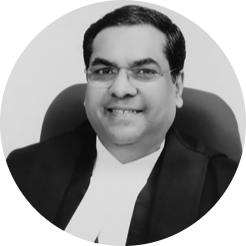Chief Justice of India Sanjiv Khanna has expressed concerns over climate change, saying that it was not just an environmental concern but a major issue threatening the very fabric of human rights and social justice.
Speaking at the convocation ceremony of Maharashtra National Law University (MNLU) in Nagpur on Saturday, the CJI listed climate change as one of the three important matters that required urgent legal intervention, along with shifting democratic structures and privacy concerns in the digital era.
The CJI said the people of India were today facing such kinds of challenges, which were completely unheard of in the past. The digital revolution has raised unprecedented questions about security, privacy and the nature of human interaction. Terming them as fundamental challenges to humanity and liberty, the CJI said these problems needed innovative solutions.
Noting that the the changing social dynamics and emerging technologies have reshaped the democracy of India, he exhorted the graduating law students to embrace adaptability and recognise that their legal education was only the beginning. The real learning would begin now, he added.
Highlighting the contribution of the legal profession to the country’s progress, the CJI said that lawyers have historically been at the forefront of social change in the country, be it India’s independence movement to contemporary battles for civil liberties, the Advocates have given it all for the cause.
Speaking about the present times, he told the young lawyers to adopt an interdisciplinary approach, whether as constitutional lawyers engaging with scientific evidence, or criminal lawyers grappling with digital forensics, they needed to embrace technological adaptability.
The CJI also allayed career uncertainty fears of the young lawyers, saying that it was a natural process. Some of the greatest legal minds, including Nani Palkhivala, had not planned for a career in law but excelled through openness to opportunities, he noted.
Stressing on the importance of legal aid and mediation, the CJI advised the law graduates to strike a balance between their professional aspirations and public service by following the policy of ‘one for the kitchen, one for the soul’.
In this way, the lawyers would be able to realise their full potential and contribute to the society as well, he added.
Noting that the legal aid system of India covered nearly 80 percent of the country’s population, the CJI told the young lawyers to remain authentic to themselves.
Success in the legal profession did not come by conforming to the stereotypes, but it was a result of following the rules and bringing one’s own unique strengths to the table. The voice and approach of the young lawyers, coupled with their way of thinking, would drive them to success in the law field, he added.


